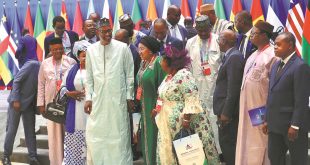Published:August 13,2022
By John Milligan-Whyte
The Taipei 101 skyscraper commands the urban landscape in Taipei, Taiwan. [Photo/Xinhua]
For over half a century the crucial foundation for US-China relations has been the United States sticking to the one-China principle.
But while Washington continues to say that the US is committed to the one-China policy, due to domestic political hostility to the Chinese mainland and support for Taiwan, the US acts as if Taiwan and the mainland were two countries and not one country.
The Taiwan question is a legacy of what was effectively the unconcluded civil war in 1949, but the Chinese mainland and Taiwan have managed to peacefully coexist since then.
The US has a policy of “strategic ambiguity” that seeks to deter the Chinese mainland from “invading” Taiwan and to deter Taiwan from declaring its “independence” from China.
To implement the strategic ambiguity policy, the US sells arms to Taiwan, but the US is not committed to defending Taiwan unless a war breaks out across the Straits. That has facilitated the Chinese mainland and Taiwan’s peaceful coexistence. Left alone the two sides across the Straits will work out Taiwan’s future.
The escalating economic and military tensions between China and the US as the result of the US trying to leverage an advantage out of the Taiwan question is the path to war.
Americans cannot understand why Nancy Pelosi’s visit to Taiwan created a crisis in US-China relations? She is just another American politician visiting Taiwan. To them China is overreacting to Pelosi’s visit to Taiwan.
To China, the speaker of the United States House of Representatives, second in line in the presidential succession, making a visit to Taiwan in 2022 is a deliberate violation of the one-China principle, as it was designed to demonstrate US support for Taiwan’s “independence”.
President Joe Biden and US military leaders understood that and recommended to Speaker Pelosi that she not visit Taiwan, saying “it was not a good idea”.
China repeatedly warned ahead of her trip that Speaker Pelosi’s visit to Taiwan would violate the one-China principle, outrageously interfere in China’s internal affairs, damage Taiwan’s relationship with the Chinese mainland , and cause a crisis in China’s relationship with the US.
As Pelosi insisted on going ahead with her visit, it resulted in the People’s Liberation Army staging live-fire military exercises all around the island and other measures designed to deter the island’s secessionists from crossing Beijing’s redline.
Pelosi’s stubborn decision to visit the island was an ill-judged move that harmed the economic and security interests of people not only on the island, but also in the Chinese mainland and the US.
The impact of US policymakers and military forces following her example and ignoring the one-China principle is foreseeable.
It will undermine China and the US’ ability to peaceful coexist which will be catastrophic for the world.
US political leaders, like Speaker Pelosi, may not care or recognize how vital peaceful coexistence with China is to the US’s economic and national security until a war breaks out.
There is a well-known nursery rhyme about Humpty Dumpty, an egg, that sat a wall. When Humpty Dumpty fell off the wall… “all the king’s men, couldn’t put Humpty Dumpty back together again.” The peaceful coexistence of the US and China is like that wall preventing World War III.
Peaceful coexistence is crucial to the US, the Chinese mainland and Taiwan’s economic success and national security and to the worldwide economy, financial and trade systems’ ability to continue to operate.
The growth of China’s economic and military power frightens US policymakers, not least because Chinese population of 1.4 billion is four times larger than the US’ population of 330 million.
The US’ current dangerous policies of escalating economic and military tensions with China have evolved from its strategic competition and engagement with China.
That trajectory, I believe, is in the wrong direction because it will destroy the US’ future economic and national security.
The challenge for policymakers is to ensure peaceful coexistence can continue.
The first question to be answered is: Does America still have a real one-China Policy or not in 2022 to 2049 and beyond?
The author is executive chairman of the America China Partnership Foundation New York.
China Daily
 Africa -China Review Africa -China Cooperation and Transformation
Africa -China Review Africa -China Cooperation and Transformation
